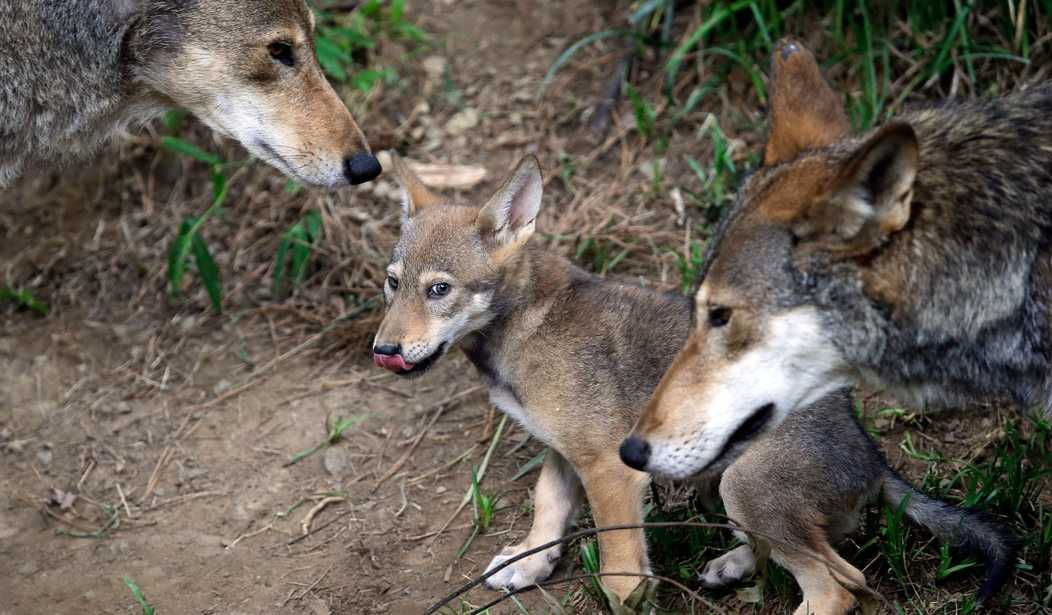The legislatures of Idaho and Montana recently passed laws making it far easier for people to kill an unlimited number of wolves. This was done in response to the population of grey wolves that have been rebounding in their traditional hunting grounds in the Northern Rockies over the past several years. Now, environmentalists and biologists are asking the Biden administration to renew federal protections for the still-endangered animals. This is an old standoff between ranchers and farmers against those who fear the native predator’s eventual extinction. Finding a balance between the two sides has traditionally been impossible, but a resolution is clearly required. (Associated Press)
Wildlife advocates pressed the Biden administration on Wednesday to revive federal protections for gray wolves across the Northern Rockies after Republican lawmakers in Idaho and Montana made it much easier to kill the predators.
The Center for Biological Diversity, Humane Society and Sierra Club filed a legal petition asking Interior Secretary Deb Haaland to use her emergency authority to return thousands of wolves in the region to protection under the Endangered Species Act.
Republican lawmakers pushed through legislation in recent weeks that would allow hunters and trappers to kill unlimited numbers of wolves in Idaho and Montana using aggressive tactics such as shooting them from ATVs and helicopters, hunting with night-vision scopes and setting lethal snares that some consider inhumane. Idaho’s law also allows the state to hire private contractors to kill wolves.
The idea of severely cutting down the wolf population is being described as a Republican or conservative issue, and it’s true that most of the states where this debate is taking place are under GOP control. That’s not true in all cases, however, as the same fight has been playing out in Minnesota, Wisconsin, and Michigan, all of which currently have Democratic governors.
While I understand the urge to get rid of the wolves, I’ve never agreed with it. It dates back to ancestral fears we have of large predators that are capable of preying on human beings, particularly when they run in a pack. And it’s true that ranchers periodically lose cattle, sheep and other livestock to predation by wolves, particularly if they are raised on wide, unfenced and unattended ranges. But is that sufficient justification to push the wolves’ numbers down to barely sustainable levels, if not drive them extinct in the United States as happened in the 1930s?
Wolves are simply magnificent creatures and they traditionally played a very important role in maintaining a balanced ecosystem in North America. Without a group of predators to control the populations of deer and other prey species, the herds are weakened and overpopulation can lead to massive die-offs when food is scarce during the winter. As to the danger they pose, there hasn’t been a person killed by a wolf in the United States in living memory. There have been six documented attacks resulting in injury in the past century, most suspected to be the result of people foolishly trying to feed them like pets.
We can’t ignore the complaints of the ranchers entirely, however. I would like to propose a compromise of sorts. What if we allowed the states to conservatively increase the allowable number of wolves to be hunted to slow their population growth without triggering a massive slaughter. To address the needs of ranchers, perhaps the Interior Department could set up a program to compensate ranchers in the states in question when they lose livestock to wolves. At the same time, they could provide educational opportunities on how to better manage the wolf population while increasing security for the herds of livestock. Also, targeted hunting of wolves specific to the area where livestock are raised could be encouraged and rewarded without simply declaring an open season on them across the entire state.
Wolves cause issues for ranchers and there is no question about that. But driving them back to the brink of extinction would simply be an evil act. Surely there must be a better way.








Join the conversation as a VIP Member